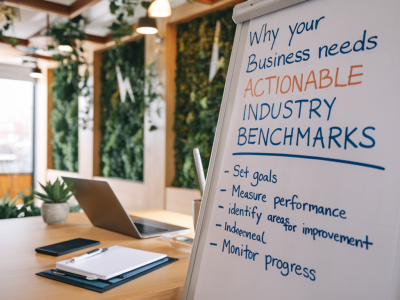
Understanding Blockchain and Its Role in Supply Chain Management
Let's be honest—when most people hear the term "blockchain," they immediately think of cryptocurrencies like Bitcoin or Ethereum. But blockchain is so much more than digital currencies. It’s a revolutionary technology that is quietly reshaping industries, and one area where its impact is profound is supply chain management.
Supply chains are the backbone of global commerce—think about every step required for a product to move from a manufacturer to a consumer. It's a complex web involving multiple stakeholders, processes, and geographies. Unfortunately, traditional supply chains are riddled with inefficiencies, lack of transparency, and susceptibility to fraud. Blockchain, however, has emerged as a game-changer for solving these challenges, offering unparalleled trust, traceability, and efficiency.
Enhanced Transparency and Traceability
One of the most exciting uses of blockchain in supply chain management is its ability to enhance transparency and traceability. If you've ever wondered where your morning coffee comes from or how sustainable your favorite clothing brand truly is, blockchain can provide answers.
By recording every transaction and movement of goods on an immutable ledger, blockchain offers a transparent history of a product's journey. For instance, companies like Walmart have implemented blockchain technology to track the origin of food items, significantly reducing the time it takes to trace contaminated products during a recall—from days to mere seconds. This level of transparency not only ensures food safety but also builds consumer trust.
Similarly, blockchain is being used in industries like fashion and diamond trading to verify ethical sourcing. Startups like Everledger leverage blockchain to certify the origins of diamonds, combating fraud and ensuring gems are conflict-free. It’s not just about solving problems—it’s about building trust, one block at a time.
Reducing Fraud and Counterfeiting
Counterfeiting and fraud have plagued global supply chains for decades. From fake medicines to counterfeit luxury goods, billions of dollars are lost annually, and consumer safety is often compromised. Blockchain is uniquely positioned to tackle this issue.
Because blockchain creates an unchangeable record of each transaction, it's nearly impossible for bad actors to alter or forge documentation. Pharmaceuticals provide a powerful example: counterfeit drugs are a major concern worldwide, especially in developing nations. By using blockchain, manufacturers can create a secure digital record of every batch of medicine. Companies like IBM and Pfizer are already working together on blockchain-powered platforms, such as the Pharmaceutical Utility Network (Phun), to ensure the authenticity and traceability of medications.
Additionally, luxury brands are adopting blockchain to fight counterfeit goods. For example, LVMH, the parent company for brands like Louis Vuitton, uses a blockchain platform called Aura to trace and authenticate luxury products, providing customers with confidence in their purchases.
Streamlining Operations and Cutting Costs
Beyond improving security and transparency, blockchain also helps businesses save time and money by streamlining supply chain operations. Think about how many intermediaries are involved in a traditional supply chain—from suppliers and manufacturers to logistics providers and retailers. Each of these steps creates potential delays, inefficiencies, and opportunities for error.
With blockchain, businesses can create smart contracts—self-executing agreements with the terms directly written into code. These contracts automatically trigger actions (e.g., payment releases) when predefined conditions are met. For example, shipping companies like Maersk have adopted blockchain platforms such as TradeLens to digitize and integrate global trade documentation. This reduces paperwork, accelerates customs clearance, and eliminates costly inefficiencies.
Additionally, blockchain can help reduce redundant steps by creating a shared, tamper-proof ledger among supply chain participants. Everyone involved has access to the same real-time data, reducing disputes and accelerating decision-making.
Improving Sustainability Efforts
If sustainability matters to you—and I hope it does—you’ll be pleased to hear how blockchain is driving greener supply chains. As consumers demand greater accountability from brands regarding environmental and social practices, blockchain offers a powerful way to verify and communicate sustainability efforts.
For instance, coffee giant Starbucks has launched a blockchain tool called the Bean to Cup initiative. This platform allows customers to trace the journey of their coffee beans, reassuring them about ethical sourcing and eco-friendly practices. Similarly, companies in the food sector are using blockchain to ensure compliance with sustainability certifications, such as fair trade and organic labels.
In practice, blockchain enables real accountability. It allows businesses to demonstrate their commitment to the environment and ensures that consumers can make informed, responsible purchases.
Challenges to Adoption
As promising as blockchain is, it's not a silver bullet. Implementing blockchain technology in supply chains comes with its fair share of challenges. Scalability is a critical concern—blockchain networks can struggle with processing large volumes of transactions quickly. Additionally, the adoption process requires significant investment, technical expertise, and collaboration among stakeholders.
That said, the benefits often outweigh the hurdles, and more industries are recognizing this each day. For businesses willing to navigate the learning curve, blockchain holds the potential to revolutionize supply chain management and set them apart in a competitive market.
Key Takeaways
If you’re a business owner, manager, or even a curious consumer, I encourage you to keep an eye on blockchain's transformative role in supply chains. Whether it’s improving transparency, combating fraud, reducing inefficiencies, or supporting sustainability, blockchain is addressing real-world challenges with remarkable results. And while adoption may not be universal yet, its momentum is undeniable.

